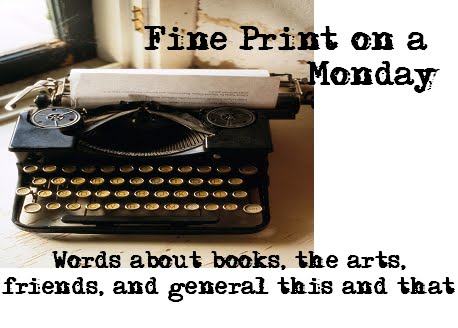I read bits of this fun little rant on the demise of punctuation when it was first released, but decided to read it in full after opening a new book and discovering what I believed to be a grammar error in the first sentence.
If you have followed my blog for a while - and I know there are at least three of you who do - you would never call me a stickler for the rules that govern fine written communication. In fact, my spelling is right down abysmal, my syntax wanting for tiding and sophistication, and my punctuation - random at best.
But, as Lynn Truss points out, its the school system's fault. Grammar and mechanics were pounded into us from grades 1-8, often at a level that was far above what we could comprehend. Come on, by 8th grade we had discovered the Beatles and Gidget and didn't really care if 16 Magazine used the oxford comma correctly.
My high school bought into a canned learning program called English 2600. We sat and our teacher sat. We read a page of explanations and examples and then took a test on what we had learned Eventually, the book gave us a big test to see if we could move up to English 3200. That's the only time I recall our teacher actively doing anything, correcting the test and issuing us a pink book to replace the blue one.
Did I learn grammar that way? Sure. I learned it long enough to take the tests. Sometimes I gambled and skipped all the page turning and went right on to the to test. Worked most of the time. To this day, my grammar skills consist partly of those I learned from the pretty colored learning system books, along with a good measure from reading and listening. That served me well through college and through the writing of a boring, 175 page thesis comparing the effectiveness of traditional testing in literature classes to the more trendy authentic assessment. No, I am not a stickler - my mantra being "If the sentence communicated something to you, then be quiet about the errors. They are MY errors, not yours!"
Truss' book is funny. And she has given me permission to do something I have done for most of my life - beginning sentences with "and". "But" is OK with her as well, and so is ending a sentence with a preposition. After all, she asserts, language is alive. It must change. No more writing on walls for us. No more stately constructs in novels burying colorful characters under the angst of accepted verbiage conventions. We're freewheeling now. Go ahead and put the period outside the quotation mark if it pleases you; just try to be consistent about it.
About that perceived grammar error in the book that started this. Not sure. The author is from New Zealand, so I guess I'll cut her some slack. Rules vary from country to country and, no, I am not about to research accepted subject-verb agreement rules in New Zealand. (Notice the effective use of commas, and the parenthetical comment ending this discussion,) Period. Full stop. Dot.
Thanks for stopping by.
Metro Jam this weekend...Friday night and Saturday. Oh those summer nights!

